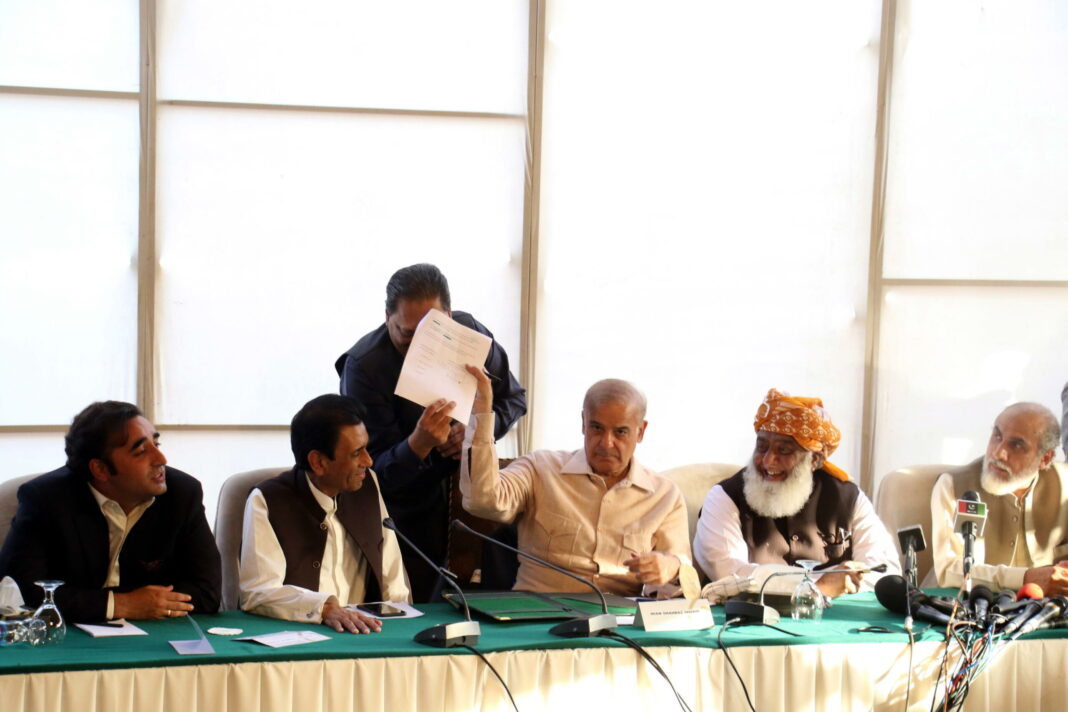One of the cards Pakistan displays to tout its importance and international standing is its strategic position at the junction of a vast region of geo-political importance. Oil and gas from Central Asia and even Russia would be flowing into Pakistan and goods from Pakistan would find easy markets in that region. As transition hub, Pakistan stood to earn millions of dollars as fee.
China, of course, has been an old and large-hearted friend, but ties with Russia, flourished in recent months as the Imran Government heeded the advice of its iron friend. It gave Pakistan a vicarious pleasure to see India squirm as ties grew between Moscow and Islamabad.
The relations with the US and the West in general remained cold but Imran Khan did not seem to worry too much. He never missed an opportunity to berate the US and the West, much to the delight of the zealots at home. In fact, he had gone to the town alleging that the US has conspired to pull down his government.
Pakistans’s diplomatic position
Post the Russian invasion of Ukraine the new-found closeness that Imran Khan developed with Putinis proving to be a big diplomatic embarrassment, if not a debacle. More discomforting for him was his presence in Moscow on the day Russia had launched attack on Ukraine. He rejected advice against his Russian visit in order to please Beijing, and also to demonstrate how ‘independently’ he runs the country’s foreign policy.
Pakistan claims to have taken a ‘neutral’ position on the Ukraine war but the zeal with which the Imran Khan government continued to blast the US has planted an impression in American minds that Pakistan stands with Russia in defiance of the overwhelming world –wide outrage against its invasion of Ukraine.
Imran Khan may personally not be keen to be friends with the US or the West but his Army is unhappy with the distance he has created with the US. Though not specifically on relations with the US, Imran Khan has developed differences with the Generals—very different from the days when he used to declare that for the first time in Pakistan’s history, the Pakistan Army and the prime minister are on the ‘same page’ on all matters.
Despite a friendly Taliban leadership taking over Afghanistan, Pakistan is unable to plan any initiative to play the role of the gateway to Central Asia it had envisaged for itself—a trump card, a point of leverage. But that role looks miles away as a belief exists in Pakistan that the Taliban has been trying to chart a course independent of ISI diktates. This would appear to be true considering the continued militant attacks on Pakistan from Afghan soil.
Pakistan made itself the unofficial spokesman of the Afghan Taliban, both to prove its proximity with the new rulers in Kabul, and also to ensure that the Taliban remain grateful for vigorously advocating its global recognition. Turn of events show that Islamabad – Kabul bonhomie is a one-way street.
Generals and other top brassmade frequent trips to Kabul, hoping to influence the Taliban totake immediate steps against the militant groups attacking Pakistan. Some of these attacks have resulted in the ‘martyrdom’ of soldiers, apart from heavy civilian casualties. Pakistan is in no position to protest for fear of losing the friendship of the Taliban.
The euphoria in Pakistan was universal after Kabul fell to the Taliban on August 15 last year. Apart from the obvious reason that a government considered close to ‘arch enemy’ India had been thrown out, an important factor behind the jubilation was a belief that a friendly Afghan government would be helpful in establishing Pakistan as the gateway to trade with Central Asia.
This was to come soon after Pakistan provided a short land route to its ‘iron brother’ China for trade with the Middle East, the major source of oil for China. The land route avoided thousands of miles of detour via sea lanes that China had to use for import and export of goods. It also provided shorter and easier access to reach Chinese good to the big African market.
Imran Khan’s next moves
Imran Khan had built up hopes of energy flows from Russia and Central Asia, banking on Russian aid to build a pipeline from Central Asia to his energy starved nation. That must remain a pipe dream; Russia, withering under sanctions, ishard pressed for cash almost as badly as the ultimate benefactor, Pakistan.
The hardship caused by economic factors may have a bearing on ties between Russia and Pakistan. The global sentiments against Russia can dampen these ties even as the possibilities of a patch up in the frayed US-Pakistan ties do not appear bright in the near future.
The road ahead for Pakistan is going to be uphill. More so as the country’s economy has been so thoroughly mismanaged by Imran Khan that it now ranks below Bangladesh—an odious comparison with a territory that was once part of it. The dependence on IMF bailouts has reached worrying proportions which may undo many populist measures, leading to unrest in the country.

